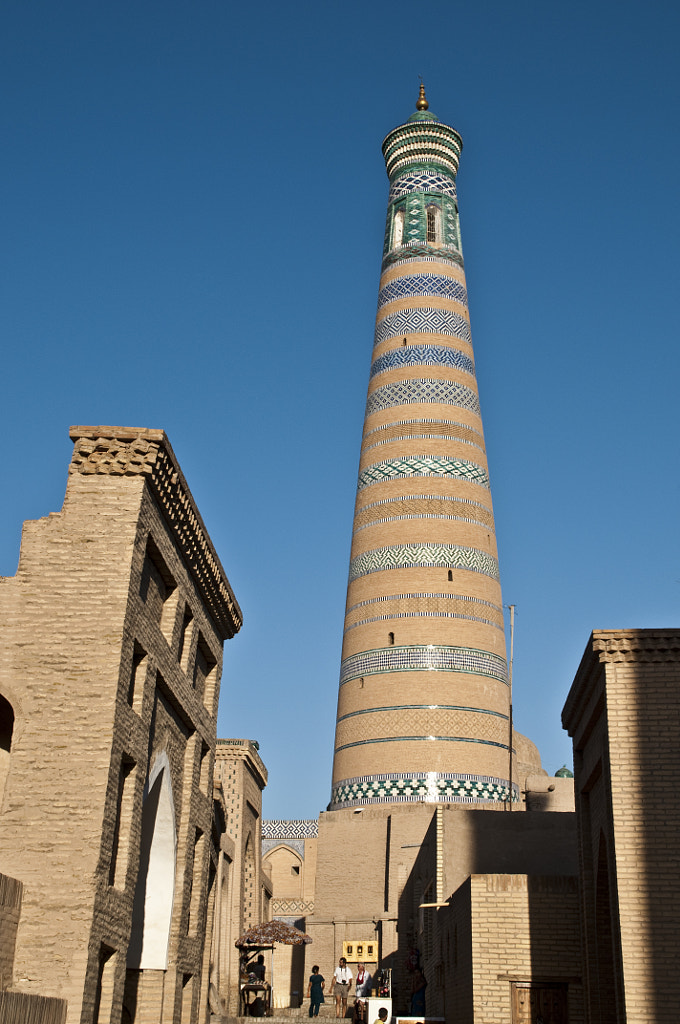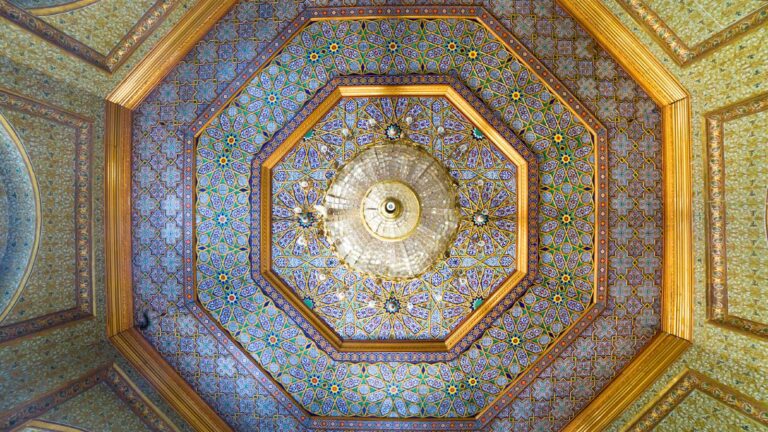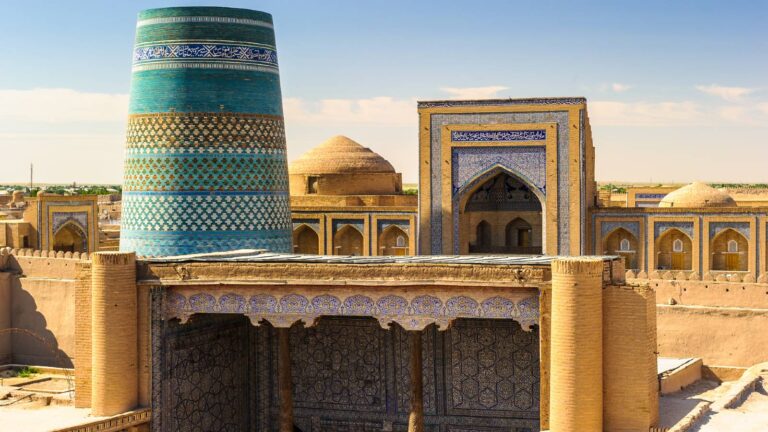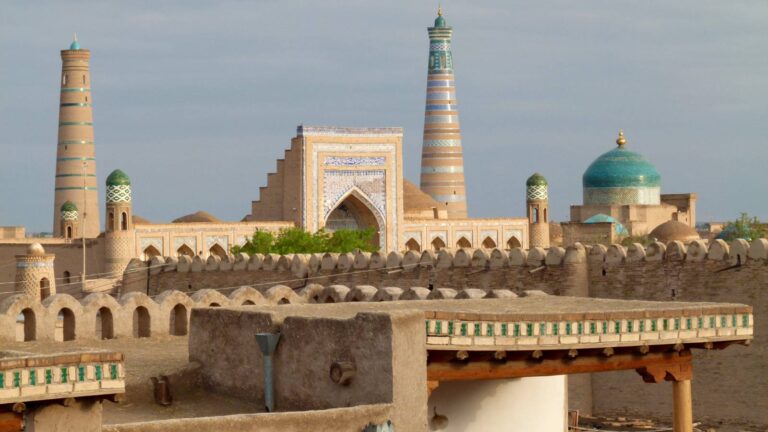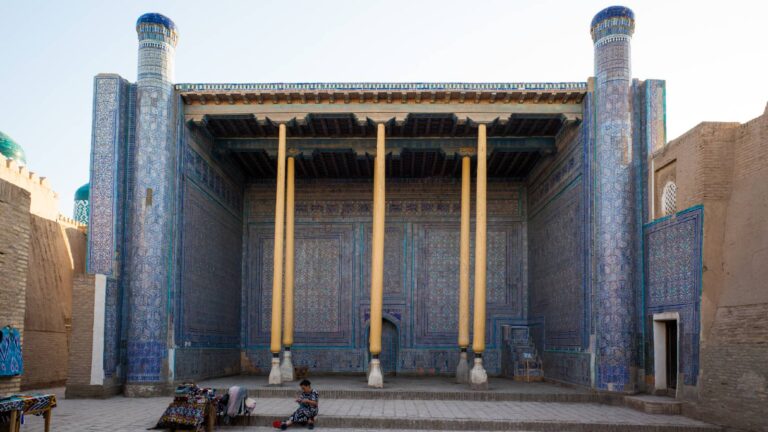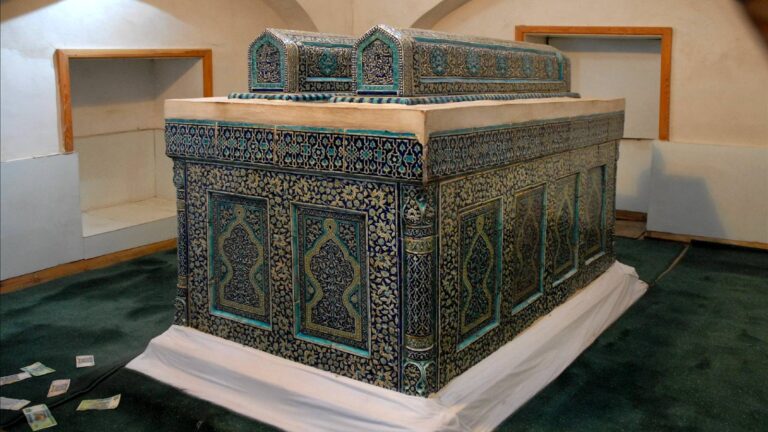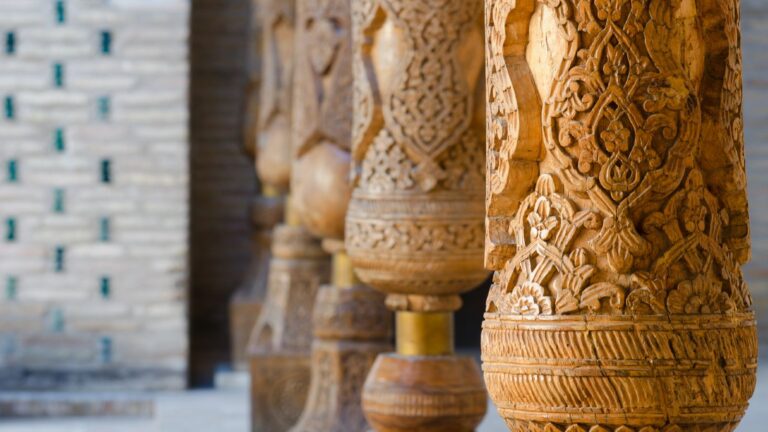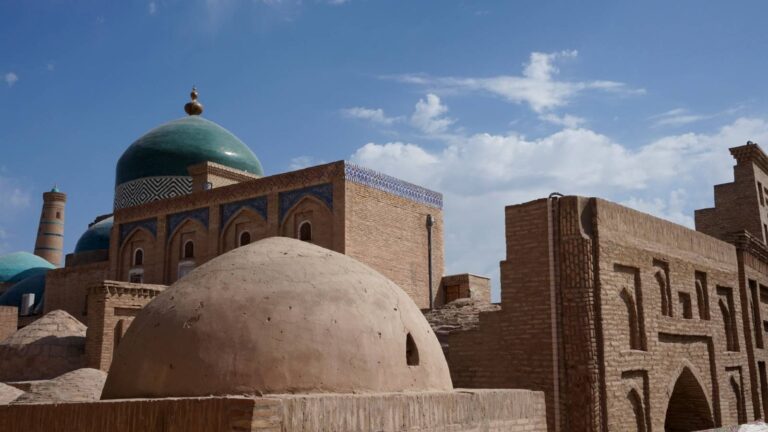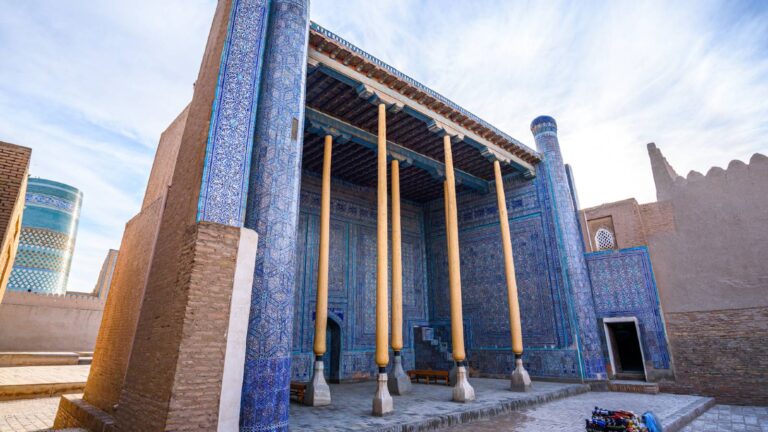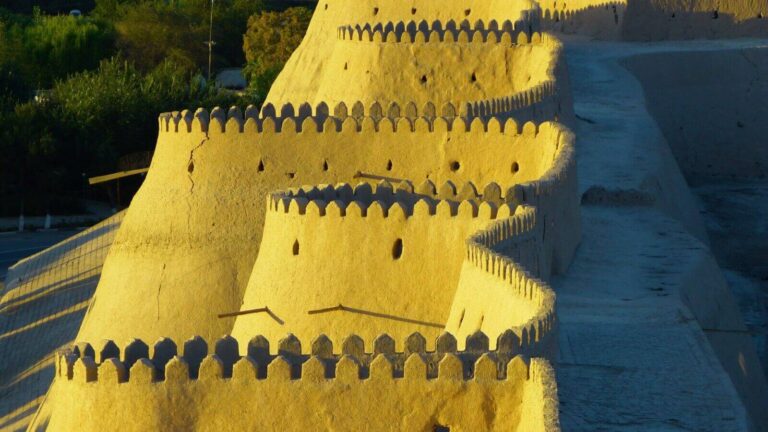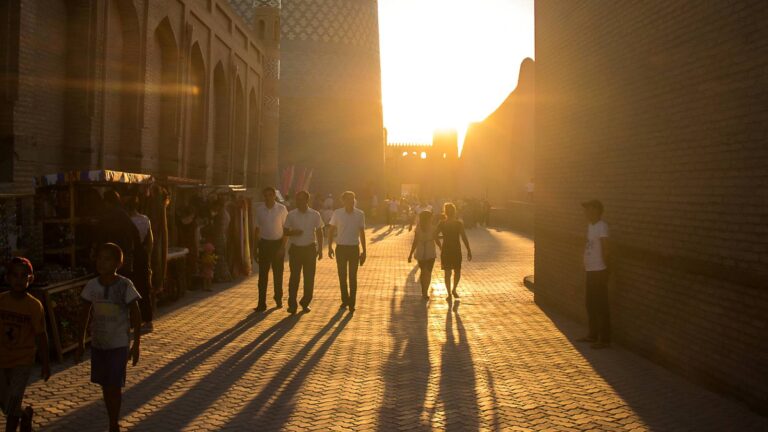Main image: Jean-Pierre Dalbéra from Paris, France, CC BY 2.0, via Wikimedia Commons
Getting There
All types of transport are available to get to Khiva, Ichan-Kala. The International Airport is located in Urgench. From Urgench to Khiva 30 km. There are buses, trolleybus, minibuses and taxis.
With the Train you can get directly to Khiva, as there is a railway station in Khiva.
What to Expect
Contrasting combinations of architectural forms in a small area give an idea of the skill of the architects. Mihrab is decorated with majolica and ganch carving. The walls are decorated with glaze and tiles.
At one time, the minaret performed several functions. It was at the same time an observation tower, also had a religious function, in particular, it was used for adhan (calling Muslims to prayer) to the nearest mosque. It was also used to call the population to the nearest square to read the decrees of the rulers and other reasons.
History
The construction of the Islam-Khoja madrasah and minaret began in 1908. The famous architect Khudoybergan Khadzhi, as well as skillful nakkashi (creators of patterns) Eshmukhammad Khudoiberdiev and Bolta Voisov participated in the construction of the madrasah and the minaret. The construction of both facilities was completed by 1910. The madrasah consists of 42 hujras (small rooms) and a large domed hall.
The minaret is the tallest structure of old Khiva, its height is 56.6 meters, and with this indicator it is the second highest minaret in Central Asia (in third place is the Kalyan minaret in Bukhara, with a height of 46.5 meters), and in the first place is the Minaret Kutlug-Timur in Kunya-Urgench with a height of over 60 meters. Domed fortifications, in which there are loopholes for archers. There are also jagged protrusions along the entire edge of the wall.
The clay wall that protected the city had several gates. They were also part of the defensive fortification. The remaining gates contain traces of shock towers on either side of the arch, and observation decks rise above them. The passage was made in the form of a long corridor with domes. This is well preserved on Koi-Darvaza.
The clay that was used to build the fortress was dug a couple of kilometers from Ichan-Kala, on the territory of Govuk-Kul, where the lake is located today. Apparently, it was formed in the cavity of an ancient clay quarry. The lake is considered sacred. By the way, the clay there is really of high quality, potters are still famous for their products from it.
Facilities Available
Now it works as a museum of applied arts of Khorezm.

